Members: Oceania
the Donor Research Network
the Donor Research Network
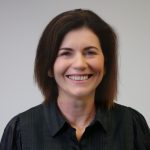
Key areas of interest:
SoHO, donor recruitment and retention, gender equity prejudice discrimination
Professor Barbara Masser is the Lead Researcher and co-founder of the Donor Research Network (DoRN).
Professor Masser is Australian Red Cross Lifeblood’s Chair in Donor Research and is situated in the School of Psychology at The University of Queensland.
Barbara’s research uses social psychological theory to solve real social problems. Over 16 years she has collaborated with a range of industry partners (e.g., Australian Red Cross Lifeblood; state police agencies) to design and evaluate theory-based solutions to problems as diverse as how to minimise bias in investigating allegations of sexual assault to how to maximise blood donor appointment attendance.
Barbara has over 60 peer reviewed publications including many focused on prejudice, discrimination, and donor recruitment and retention that have been published in Annals of Behavioral Medicine, Psychology of Women Quarterly, Journal of Personality and Social Psychology, Law & Human Behavior, Transfusion, Transfusion Medicine Reviews and other journals.
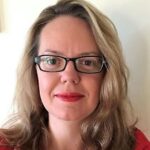
Key areas of interest:
SoHO, donation recruitment and retention, volunteering, psycho-oncology, health behaviours

Key areas of interest:
Social and clinical psychology
Courtney is a Science Communication Officer for the Donor Research Network (DoRN) and a Research Assistant for the “Helping the Medical Matchmakers: Sustaining and Understanding Living Donors” program.
In addition to this, Courtney is currently completing the Master of Clinical Psychology program at the University of Queensland.
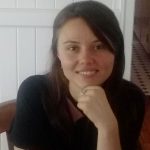
Key areas of interest:
Clinical psychology, Moral psychology, prosocial and compassionate behaviour

Key areas of interest:
Bone marrow donation

Key areas of interest:
Organ donation
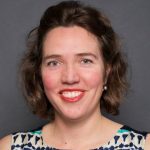
Key areas of interest:
Human milk donation, donor milk use in neonatal intensive care
Katherine is a sociologist and ethnographer at the Australian National University. Her research has enabled donor milk to be understood as more than an infant food or a therapeutic agent by placing its use in a social context. She received two ARC Discovery Project grants (2011, 2018) to work on understanding the sociological aspects of milk donation and donor milk use in neonatal intensive care.
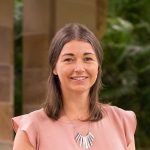
Key areas of interest:
Psychology of charitable giving and public perceptions of nonprofits
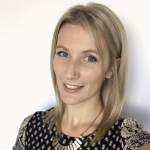
Key areas of interest:
Marketing, donor behaviour, prosocial behaviour, non-cash incentives for donation
Kathleen is an active researcher within the nonprofit and social change sector. Having completed her PhD from Queensland University in Technology in 2016, Kathleen brings a marketing perspective to understanding and improving individual engagement in donation and other pro-social behaviours that benefit nonprofit organisations, society and the environment.
She combines qualitative and quantitative research methodologies in her current research looking at the use of technology to communicate, engage and recognise donors, evaluating the introduction of non-cash incentives, social context and encouraging people to talk about donation activity.
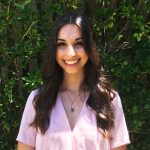
Key areas of interest:
Prospective and social cognitive impairments in clinical and non-clinical populations
Sarah is a Lead Research Assistant at Australian Red Cross Lifeblood and is currently leading a systematic review interested in understanding the physiological and psychological health effects of blood donation from the donors’ perspective.
Sarah was previously a Research Assistant for the Sustaining and Understanding Living Donors Project at The University Queensland and completed a systematic review of reviews focused on gaining a better understanding of the recruitment and retention of donors of substances of human origin (e.g. blood, organs, and tissue).
As well as this, Sarah is currently completing her PhD in psychology on prospective and social cognitive impairments in Parkinson’s disease.

Key areas of interest:
Psychology and health of blood donors, mental health and wellbeing of older adults
Associate Professor Davison is a Clinical Psychologist and Director, Research Discovery at Silver Chain Group. She is also Adjunct A/Prof at Monash University and Swinburne University of Technology.
Associate Professor Davison conducts applied research with a demonstrated impact on health care systems. Her research interests span the psychology and health of blood donors, and the mental health and wellbeing of older adults.
Previously, Associate Professor Davidson led a multidisciplinary program of research at Australian Red Cross Lifeblood to ensure the sustainability of the Australian blood supply and maintain the health and well-being of blood donors. This role involved building collaborative relationships with key internal and external stakeholders to support the implementation of a leading-edge research program focused on improving outcomes for donors, and developing an evidence-base for business decisions.
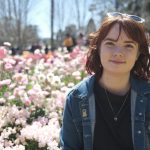
Key areas of interest:
Gender, acceptability of financial compensation across donatable substances of human origin
Abigail is currently completing her PhD in Psychology under the supervision of Professor Barbara Masser and Associate Professor Fiona Barlow.
Abigail’s research focuses on how gender and acceptability of financial compensation interact across donatable substances of human origin.

Key areas of interest:
Sociology of Health, Families, Relationships, LGBTIQ, and Religion

Key areas of interest:
Clinical psychology, stress & anxiety, cardiovascular psychophysiology; blood donor health, recruitment, retention

Key areas of interest:
Blood donation, donation assessment and eligibility, infectious disease, travel medicine and mental health
Rob is responsible for over-seeing the Guidelines for Selection of Blood Donors and Donor Questionnaire, which are the two primary documents used in assessment of blood donors eligibility to donate. They are updated regularly based on medical and scientific knowledge, demographic change, business needs and regulatory requirements. Rob has been in this position for 8 years and also has interests in research into patterns of infectious disease, travel medicine and mental health.
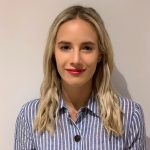
Key areas of interest:
Bone marrow
Ashley explored the effect of information provided on bone marrow registration decisions as a 2019-2020 Summer Research Scholar under the supervision of Professor Barbara Masser and Dr Mel Hyde for the Sustaining and Understanding Living Donors Program. She completed her Bachelors degree in Psychological Science at The University of Queensland and is undertaking her Honours year. She is particularly interested in the area of applied social psychology, and broadly interested in understanding and increasing conversations around organ donation and donor rates.
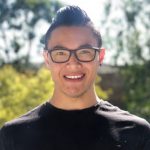
Key areas of interest:
Altruism, blood donation
Michael completed his PhD in Psychology under the supervision of Professor Barbara Masser at The University of Queensland.
Michael’s research used social and evolutionary theories to understand altruism. In particular, his research focused on the links between reputation and blood donation
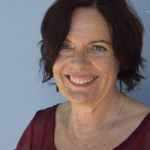
Key areas of interest:
Blood and organ donation, donor registration, COVID-19 vaccination, community and the re-settlement of forced migrants
Gail Moloney is an Associate Professor in the Discipline of Human Sciences within the Faculty of Health at Southern Cross University (Coffs Harbour, NSW, Australia). Her research interests fall broadly in the area of social psychology, with a particular interest in drawing from theory to understand and design strategies and interventions for pressing social and health issues. Hallmarks of Associate Professor Gail Moloney’s research focus on understanding the individual as an inseparable part of their society and the need to respect lay knowledge and understandings in their own right.
Associate Prof Moloney’s interest in organ donation began with her PhD in 2002, which drew from the theory of social representation to understand how organ donation was understood by those in the lay world rather than a poor cousin of medical knowledge. Currently, she leads a research team (DRREAM: Donation, Registration, Research, Education Awareness ) that has for the last six years focused on increasing the number of people who register their donation decision on the Australian Organ Donor Register (AODR).
Further information on Associate Professor Moloney’s research can be found here: Research Impact: Organ Donation Registration and Research Profile.
Other research interests include blood donation, COVID-19 vaccination, community and the re-settlement of forced migrants and the depiction of minority groups through cartooning, social identity and emotion within representation.
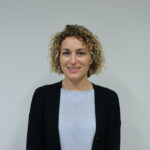
Key areas of interest:
Blood donation
Yasmin works in the Global Health Program at the Kirby Institute, University of New South Wales, Sydney. She is both a PhD candidate and a clinical project coordinator, with 15 years experience coordinating clinical trials in the UK and Australia. Yasmin currently coordinates a national Blood Donor Survey, in partnership with University of Queensland and Australian Red Cross Lifeblood. This is the focus of Yasmin’s PhD, which aims to estimate the prevalence of blood donation eligibility, and to examine knowledge, attitudes, and perceptions of blood donation eligibility in Australia.

Key areas of interest:
Marketing communication, attitudes and brand perceptions
Dr Ravi Pappu is an Associate Professor of Marketing at the University of Queensland Business School. His research expertise is in the areas of advertising and branding. His research focuses on modelling decision making to understand how marketing communications (e.g., advertising, celebrity endorsement, sponsorship) shape people’s attitudes and brand perceptions. His research on nonprofits and donor behaviour has attracted competitive grant funding from Australian Research Council and Australian Red Cross Life Blood and been published in leading scholarly international journals (e.g., Journal of the Academy of Marketing Science). He serves on the editorial boards of several leading scholarly journals.

Key areas of interest:
Environmental marketing/management, blood donation issues, stakeholder theory, ethical and social issues in marketing
Professor Michael Polonsky is an Alfred Deakin Professor and Chair in the Department of Marketing in Deakin Business School at Deakin University, Melbourne, Australia. He received his PhD from the Australian Catholic University in 1999 and has Masters degrees from Rutgers University-Newark and Temple University.
Michael is an internationally recognised marketing expert and is a member of the Academy of Marketing Science, American Marketing Association, Australian and New Zealand Academy of Marketing, and the Australian Marketing Institute. He is on the editorial review board of 15 academic journals looking at international marketing, non-profit issues, public policy, international marketing and general marketing issues.
Michael has published extensively in his key areas of interest including environmental marketing/management, blood donation issues, stakeholder theory, ethical and social issues in marketing, cross-cultural studies, and marketing education. He has authored or co-authored over 140 journal articles in these areas and more than 140 presentations at national and international conferences.
Michael has successfully collaborated with a number of industry partners, including the Australian Cooperative Housing Alliance, Australian Bureau of Statistics, and Veolia. For over a decade he has partnered with Australian Red Cross Lifeblood on a body of research about the experience of African migrants and refugees donating blood in Australia and interventions and social marketing approaches to support their donations. Michael led the Australian Research Council Linkage Grant, Developing culturally relevant social marketing interventions to increase blood donation amongst migrant communities: The case of African migrants, in partnership with Australian Red Cross Lifeblood.
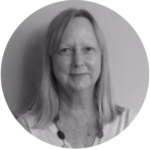
Key areas of interest:
Haemochromatosis

Key areas of interest:
Blood donation, reducing blood donor adverse reactions and improving blood donor retention
Amanda is currently completing her PhD in Public Health under the supervision of Dr Anna Williamson, Associate Professor Tanya Davison, & Professor Barbara Masser.
Amanda’s research focuses on strengthening the use of research in blood donor management.

Key areas of interest:
Organ donation
Kiana completed her honours under the supervision of Dr Mel Hyde. Kiana’s honours research project focused on attitudes towards and perceptions of organ donors in opt-in and opt-out organ donation systems.
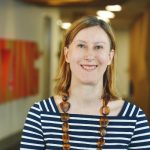
Key areas of interest:
Donor behaviour, blood and plasma donation, HIV social research, gender, sexuality.
Rachel is a social researcher, with a particular interest in using qualitative approaches to gain insights into the meanings of practices that people engage in, including blood and plasma donation, and how these change over time.
She completed her PhD in Sociology from La Trobe University in 2015.
Rachel has previously worked in the areas of HIV social research, gender, sexuality and ageing.
She is currently involved in a range of projects to do with donor behaviour, investigating ways to improve the recruitment and retention of donors.
Rachel is a member of the International Sociological Association, The Australian Sociological Association and the Australian Association of Gerontology.
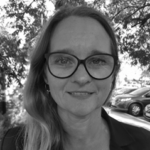
Key areas of interest:
Settlement experiences, belonging and recognition, organ and tissue donation
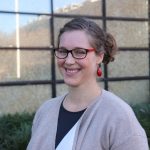
Key areas of interest:
Emotional experience and social interaction, blood donation, influence of emotions on donor behaviour
Lisa is an Associate Professor in the School of Psychology at the University of New South Wales, Sydney, Australia. She completed her PhD from Northeastern University in 2009.
She is a social psychologist interested in the dynamics between emotional experience and social interaction. Much of her research focuses on positive emotions that arise in the context of social interactions – namely pride, gratitude, and compassion — and how those emotions, in turn, promote adaptive behaviours at the interpersonal, interpersonal, intergroup, and societal levels.
Lisa’s research in the area of blood donation focuses on the impact of the current, recalled, and anticipated experience of emotions on donor behaviour. Countering a strong tradition to examine cognitive determinants of donor behaviour, and a dominant focus on negative states, Lisa’s work is shedding light on the nature and impact of donors’ positive emotional experience.
Lisa is member of the Society for Affective Science and the Society of Experimental Social Psychologists. Her research is funded by the Australian Research Council and Australian Red Cross Lifeblood.

Key areas of interest:
Human breast milk donation; breast milk donors
Associate Professor Alice Rumbold is a Principal Research Fellow and co-lead of the Perinatal and Pregnancy Care Program at the South Australian Health and Medical Research Institute. A perinatal epidemiologist by background, she is passionate about improving the care provided to women, babies and families during the pregnancy and newborn period, with a focus on vulnerable population groups. She is currently leading a number of studies that aim to improve use of breast milk and breastfeeding among preterm infants.